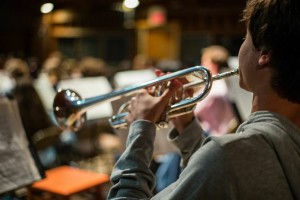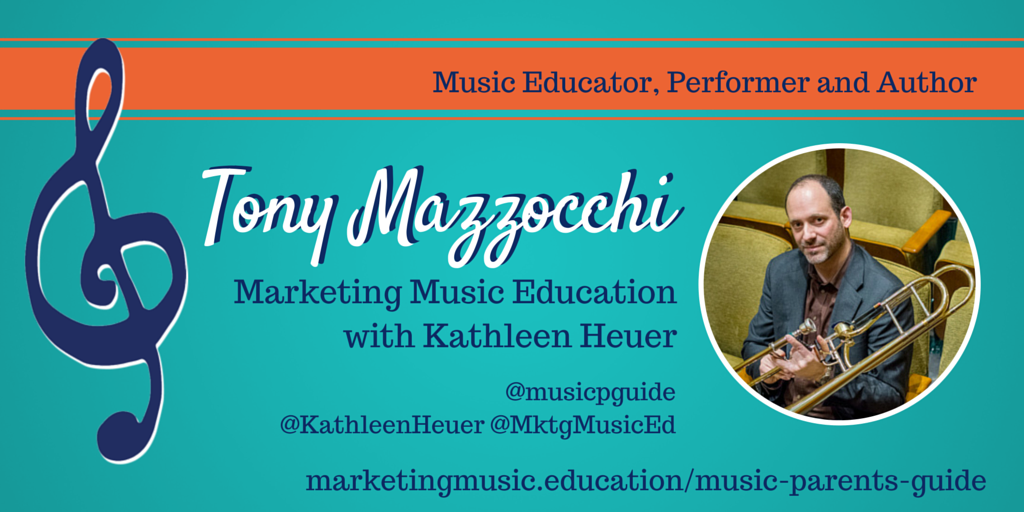 Hopefully your child will begin a musical instrument through their school music program. If so, when they bring home their instrument for the first time, it is more than just an exciting day…
Hopefully your child will begin a musical instrument through their school music program. If so, when they bring home their instrument for the first time, it is more than just an exciting day…
...It is an opportunity...
…Perhaps one of the greatest opportunities in your child’s life thus far.
If you are like me, you want your kid(s) to complete their K-12 education with far more than factual knowledge and an ability to score well on tests. You don’t believe that your child’s success in life depends primarily on cognitive skills — the type of intelligence that is measured on IQ tests and such. You don’t believe that school should be primarily focused on stuffing kids’ brains with as much factual knowledge as possible, but instead is focused on growing skills and mindsets that will last a lifetime. Psychological traits that include
- The patience to persist at a tough (and perhaps boring) task;
- The ability to delay gratification;
- The curiosity and grit to problem solve;
to name just a few.
And the musical instrument in your child’s hand could be the key to learning those skills.
You see, your child didn’t receive an instrument with the expectation that they would become a professional musician, just as they did not receive a math book with the expectation of them becoming a mathematician. But, unlike any other subject, your child has the opportunity to develop some of the most important life skills through learning to play an instrument, and you need to let them know this is the case.
Here are three things parents need to know and be able to express to their child as soon as they begin learning to play a musical instrument:
- “You are allowed to fail, and you will become better because of your failures.” There are no red pen marks for missed notes in music the way there are on tests — there is nothing to feel bad about when you play something “wrong” in music. To become skilled at a musical instrument — and to become great at anything — one needs to struggle a little. In your child’s case, they need to sound bad before they sound good; they need to work on things just beyond what they are capable of in order to get better and smarter, and that means they need to make mistakes. There is a small gap between what we all are able to do and where we want to be, and focusing on that gap makes us better learners and better people. Learning a musical instrument allows us to grow from our mistakes.
- “Hard works trumps talent every single time.” Practicing a skill over and over, the right way, fires circuits in our brains that solidify that skill. Sure, some people find some skills easier at first than others, but the people who practice that skill daily in order to “burn it” into their brain will always far surpass people who don’t practice enough. Practicing a musical instrument helps children learn the universal truth that hard work trumps talent.
- “This is a long-term commitment, and we are going to stick with it.” Studies have shown that students who identified that they would play their instrument for longer than one year outperformed students who only committed to one year of playing by up to 400% — practicing the same amount of time if not less! The ideas and mindsets students bring to their musical instrument study have a direct effect on their success, and it’s the parents’ role to set the tone on the first day by not giving their child an “easy out” to quit. Make the decision to invest in your child’s music education for at least a few years of their schooling and you will see results.
There are not many subjects taught in school that have the potential to give our children the life skills they need to be successful beyond their school lives. Our children can learn how to have grit, motivation, problem-solving skills, flexibility, and character during and after their K-12 schooling — and music is the vehicle to teach these skills.
What if we as parents treated music like any other core subject and expected our children to study it for at least 4 or 5 years? What does “success in school” mean to you and your child?
My book, The Music Parents’ Guide : A Survival Kit for the New Music Parent, is available for order on Amazon Kindle today. If you are an educator, please let your parents and students know about this resource in order to help them through their initial years of study and beyond! If you are a parent, please consider purchasing and letting your school music teacher know about the book and this blog. Thank you!








Great post. Another important life skill I learned from being a committed music student was how to perform under pressure, especially in front of an audience. My career was in business consulting, but the years of solo and ensemble playing gave me the poise to speak in front of any group.
I agree about performing, which then translates to public speaking or attacking any nervous moments. Confidence cannot be measured on tests, and that is one of the greatest character traits we can teach our kids.
One music teacher told my 10-year-old, who was preparing for a recital. “If you make a mistake, keep on playing. Most people won’t even notice.” That is the best-ever advice for life!
Indeed, that is great advice for all of us! I based #1 on that advice. Thanks for visiting!
Great suggestions. As we all know, there are many distractions along the way that derail music study. Helping your child predict what might become a roadblock and how it will be addressed is a great plan.
Another great article! Thanks for all the wonderful stuff you post.
Laurie Richards recently posted…Playing Opportunity
1 and 3 are on point, but as someone who was taught that hard work would be enough for me to achieve musical success, I urge you not to give your child the false sense of entitlement that their hard work will always surpass those who don’t work as hard/are naturally talented. The musical world is highly political (yes, even in middle and high school) and you are setting your child up for disappointment by telling them all they have to do is practice hard. Yes, sometimes working hard will help them achieve, but to say that hard work will trump talent “every single time” is just not true. There is always going to be a kid who is more talented and better at sucking up, and your child is going to have to deal with the frustration that comes with not getting what they feel they “deserve” when that kid gets first chair and they don’t. The music world does not care what you think you deserve. There is a much better lesson to be learned here and that’s that life isn’t fair, but you shouldn’t let that stop you from doing what you love and continuing to work hard. Other lessons I consider more valuable? How to work collaboratively, how to be self-motivated and disciplined, how to present yourself in front of a crowd, how to be reliable. One of the most important things my teacher said to me was “be a sponge.” If you meet someone who is more talented than you find a way to learn from them. I went to a performing arts high school, and attended a prestigious university with a highly competitive music program until I left after realizing that no matter how much I practiced, it wasn’t going to win me a job and I wasn’t going to be as successful as the people who were well connected or naturally talented at a level beyond my grasp. I was much happier when I started playing for the sake of enjoying it, and not for the sake of working the hardest to be the best. Teach your children that.
Thanks for the comment, Sarah. You know, a lot of people have taken exception to the “hard work” quote. Perhaps I could have written it better, but the point remains clear: hard work is a process, and “talent” is not inborn and can be increased. Whether that lands a child 1st chair or not is irrelevant. Besides, if I had to bet on all my young musicians who would be “successful” later on in life, I would have gotten it wrong. Persistent, mindful and consistent work performed intelligently wins every time — and the rewards come in many forms.
Hi, Thanks for sharing this.
In school, they will never tell you it’s OK to fail, they would never tell you every disappointment comes with another batch of opportunity. I wonder why the lessons we learn from school contradicts the principle we need in real life.
Thanks again.
Augustus recently posted…5 Things You Will NEVER Learn in School.
Wow, I wish someone had told these tips to me when I was learning the violin! My daughter has taken up an interest in the cello and so we are going to make a trip to the music store in a few weeks to get her one of her very own. I am going to be teaching her mainly myself and I think that these tips will really help her love the music and the instrument itself. Thank you so much for sharing!
Don’t let them quit too young! My mother made me practice piano when all I wanted to do was play basketball and now I am so grateful to be able to play. I know it may not be the same for all, but it was for me.
I’m a big believer that playing a musical instrument improves your brain! I really loved the traits you suggested in working on, as those really help in music! I agree that hard work is better than talent, because most people with a natural talent, never practice, and therefore never improve! I feel more prepared in teaching my kids these principles, thank you for this advice!
I’ll forward this to my sister. My nephew is getting frustrated playing the piano, he can’t seem to get the basics right. Hope the little guy could get some encouragement from this.
Great Share@Tony!
Improved literacy, increased neural processing, and having a biological effect on children’s developing nervous system.learning to play a musical instrument is good for developing brains, especially for children, and this improves their academic results through aiding literacy. You have given great tips @Tony! Every person or parent should read your post. Worth to share!